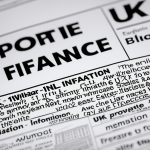Authoritative UK Guidelines for Pet Nutrition
In the UK, pet nutrition is governed by established veterinary and animal welfare organizations that emphasize a balanced diet for pets. These guidelines stress the importance of tailoring nutrient intake specifically to the needs of common UK pets, such as dogs and cats. A well-balanced diet should include appropriate levels of proteins, fats, vitamins, and minerals to support pet health throughout different life stages.
The UK pet nutrition framework also highlights the significance of regulatory compliance. Pet foods sold in the UK must meet stringent criteria set by authorities to ensure ingredient safety and nutrient adequacy. This regulatory oversight reassures pet owners that commercial diets comply with animal welfare standards and nutritional science.
Additional reading : How can I manage pet allergies in the UK?
Adhering to pet feeding advice UK means considering breed-specific requirements and adapting diets accordingly. For instance, active working dogs need higher energy levels compared to more sedentary pets. These balanced diet guidelines aim to prevent both malnutrition and obesity, addressing common concerns in pet health management. Following these expert-backed recommendations helps maintain optimal wellness and longevity in UK pets.
Essential Nutrients for Dogs and Cats
Understanding the essential nutrients pets UK require is vital for optimal health. Both dogs and cats need a balanced supply of proteins, fats, vitamins, minerals, and carbohydrates, but their requirements differ. Dogs benefit from high-quality animal proteins and fats that support energy needs and muscle maintenance. Cats, as obligate carnivores, need specific amino acids like taurine found only in animal-based proteins.
Topic to read : How Can You Ensure a Healthy Lifestyle for UK Pets?
UK-specific pet food standards require manufacturers to list ingredients transparently on labels. These labels help pet owners meet their dog nutrition tips and cat diet requirements effectively. It’s important to note that age, breed, and activity level strongly influence nutrient demands. For example, puppies and kittens need more protein and calories than adult pets, while senior animals require adjusted nutrients to maintain health without excess weight.
The inclusion of certain vitamins like A, D, E, calcium, phosphorus, and fatty acids is compulsory to meet the essential nutrients pets UK depend on. Reading pet food labels carefully and selecting products approved by UK regulatory bodies ensures compliance with these standards. This approach avoids nutritional deficiencies and supports life stage-appropriate growth, vitality, and longevity in UK pets.
Authoritative UK Guidelines for Pet Nutrition
In the UK, UK pet nutrition guidelines are established by veterinary and animal welfare authorities focused on promoting a balanced diet specific to pets’ needs. These balanced diet guidelines emphasize tailored nutrient profiles that correspond closely with the physiology and lifestyle of common UK pets, mainly dogs and cats. Ensuring the right balance of proteins, fats, vitamins, and minerals is critical, as imbalances can lead to health issues such as obesity or malnutrition.
Pet owners should always follow official pet feeding advice UK to align with these recommendations. The guidelines advise adjusting diets according to pet age, breed, and activity level, highlighting the importance of customization rather than a one-size-fits-all approach. Additionally, UK regulatory bodies enforce strict requirements on pet food manufacturers to meet nutritional standards and ensure ingredient safety. Labels must be clear and comprehensive, enabling owners to make informed choices that satisfy the balanced diet guidelines.
This regulatory oversight reassures pet carers that products available in the UK market support animal welfare and nutritional adequacy. Adhering to these pet feeding advice UK principles promotes longevity and wellness, providing a clear, scientifically backed framework for responsible pet nutrition across the UK.
Authoritative UK Guidelines for Pet Nutrition
UK pet nutrition guidelines are crafted by veterinary and animal welfare authorities to ensure pets receive a balanced diet tailored to their specific needs. These balanced diet guidelines stress the importance of adjusting nutrient intake based on the pet’s species, age, breed, and activity level, offering precise pet feeding advice UK that helps avoid common issues like obesity or nutrient deficiencies.
Regulatory frameworks in the UK play a pivotal role, requiring pet food manufacturers to comply with strict standards covering ingredient safety and nutritional adequacy. This ensures all diets available meet scientifically backed nutritional profiles suitable for UK pets. Labels must clearly indicate nutrient content, allowing pet owners to follow pet feeding advice UK accurately and select products aligned with balanced diet guidelines.
The focus remains on meeting the physiological needs of common UK pets like dogs and cats by balancing proteins, fats, vitamins, and minerals. Through adherence to these guidelines, pet owners can maintain their animals’ health and welfare, supported by a robust regulatory environment that guarantees product quality and safety in UK pet nutrition.
Authoritative UK Guidelines for Pet Nutrition
UK pet nutrition is firmly rooted in expert veterinary and animal welfare recommendations. These authorities provide balanced diet guidelines that emphasize tailoring nutrition to the biological and lifestyle needs of common pets such as dogs and cats. The goal is to maintain optimal health by precisely balancing proteins, fats, vitamins, and minerals.
A key question often asked is: Why is nutrient balance so crucial in UK pet nutrition? The answer lies in preventing health problems caused by deficiencies or excesses. For example, inadequate protein can compromise muscle maintenance, while excess calories may lead to obesity. Following pet feeding advice UK ensures diets adjust for factors like age, breed, and activity level, helping owners meet these delicate nutritional balances.
Regulatory considerations also shape the pet food market. UK standards mandate clear labelling and ingredient safety, assuring compliance with the balanced diet guidelines. This regulatory framework supports consumers in choosing appropriately formulated products, reducing risks associated with poor nutrition or harmful ingredients. These comprehensive guidelines underscore the importance of informed, precise feeding practices to promote wellbeing across UK pets.








